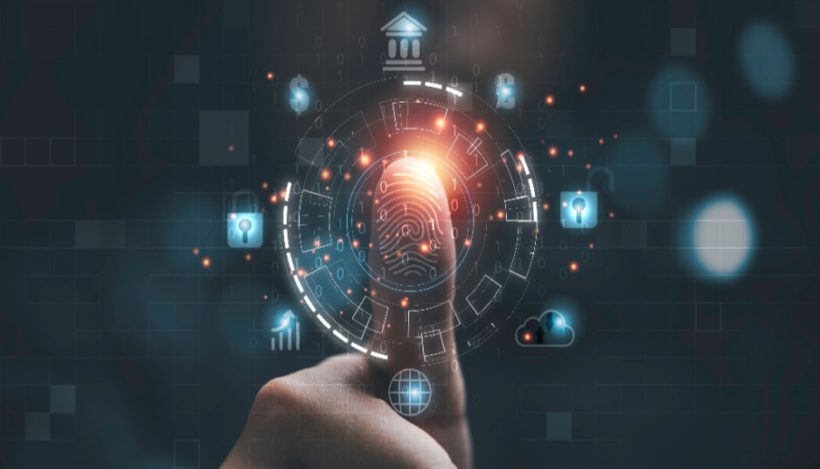Biometric Technology In Retail
The retail sector is growing rapidly and hence it is implementing various technologies. Technologies are used to strengthen the work as well as to smoothen the complexity in the retail operations. Biometric technology is also one of the advanced technologies that are getting implemented in the retail sector. In this article, we’ll let you know about the use of biometric technology in the retail industry.
What Is Biometric Technology?
The technology based on recognizing verifiable biological data that are unique and specific to a particular individual is known as biometric technology. Biometrics is an advanced, secured method of identification and verification that is increasingly used in various applications and markets.
How Does It Work?
Traditional biometric authentication uses the distinct biological or physiological characteristics of users to verify their identity. A biometric authentication solution stores the biometric data in a secure database and then compares inputted biometric factors to confirm the legitimacy of the user.
Previously, biometric authentication was the stuff of science fiction, depicted in movies and on television as advanced, expensive, and rather bulky technology to convey over-the-top security to the audience. However, recent innovations in biometric technology allow enterprises and users to embrace this new development in identity management. And if you’re among the audience reading this article on a mobile device, there’s a good chance you used biometrics to unlock it, as an estimated more than 400 million smartphones offer biometric authentication today.
What Is The Retail Industry?
In simple terms, the place where several commercial activities are proceeding is known as the retailing industry. It is providing consumers with the opportunity to purchase goods and services from different kinds of retailers.
The black swan event that happened two years back—the global COVID-19 pandemic—resulted in the exponential boosting of the online retail industry. People started buying products online. This enabled retailers to implement advanced technologies in their operations. Biometric technology is among those technologies.
Benefits Of Biometric Technology In The Retail Industry
Typically, people think of biometrics as using purely physical factors, such as fingerprints, retinal scans, facial recognition, and voice recognition. While all these play a role, biometric authentication also incorporates new dimensions such as behavioral ones. This performs a continuous authentication bus, ensuring users (who passed the initial login portal) type, act, and otherwise conduct themselves according to baseline behaviors. Users who don’t can be barred from further action until their identity can be otherwise verified. The benefits of biometric technology can be categorized as:
1. Convenience
Biometric technology allows retailers to conveniently determine the right consumers from millions, or authenticate the right one within less than a second, as it relies on using unique physical traits. The benefit of this approach over text-based passwords becomes apparent almost immediately. There’s no way for anyone to "forget" their biometric factors, as you might with your passwords, as people are usually attached to them.
2. Secure Transactions
Your enterprise can also use the proliferation of mobile devices to its advantage. Enterprises with biometric authentication solutions can often sync with employees’ mobile devices, allowing them to undergo authentication through them. This can become a massive bonus for workflows and to remote employees, as it increases security and reduces time at the login portal. The contemporary method of password and pin authentication does not provide the required amount of security for online transactions. Now with biometrics, it is more secure.
3. Privacy
Biometric technology can ensure that the privacy of one’s data is not violated, as the data is only accessible to the person who received permission. Biometrics can’t be guessed or cracked in the same way as passwords, and as long as they are stored, they can’t be stolen either.
4. Efficiency
Biometric technology increases the efficiency of the retail industry by making its transactions more accurate, reliable, productive, and punctual. Also, biometrics can facilitate workflows by allowing for more instantaneous logins and freeing up your IT security team from having to do continual password retrievals.
5. Authentication
Biometrics are often used as a major component of modern multifactor authentication. In turn, biometric authentication benefits from the other layers of security found in MFA, including geofencing, time of request monitoring, and hard token.
6. Safe From Hackers
The more security layers stand between users and access, the more difficulty hackers face in trying to breach your network. While biometric authentication provides a stronger single-factor authentication method than passwords, relying on any one security layer alone can put your enterprise in jeopardy. Biometric authentication should be a key consideration for any enterprise’s cybersecurity, but it should only serve as one part of your overall identity management system.
Conclusion
To sum up, the astonishing benefits of using biometric technology in the retail industry will be the reason for implementing this advanced technology. Hence, it can be assumed that 90% of the retail industry will use biometric technology in the future. Undoubtedly, retailers will reap tons of benefits from doing so. So if you are a retailer, please consider implementing biometric technology in your business.
Further Reading:
- How Technology Can Drive Transformation in Retail?
- How Digital Automation is Transforming the Retail Industry
Additional Resources:
Looking for the right LMS for retail training? Find, choose, and compare learning management systems in eLearning Industry's exclusive online directory.








